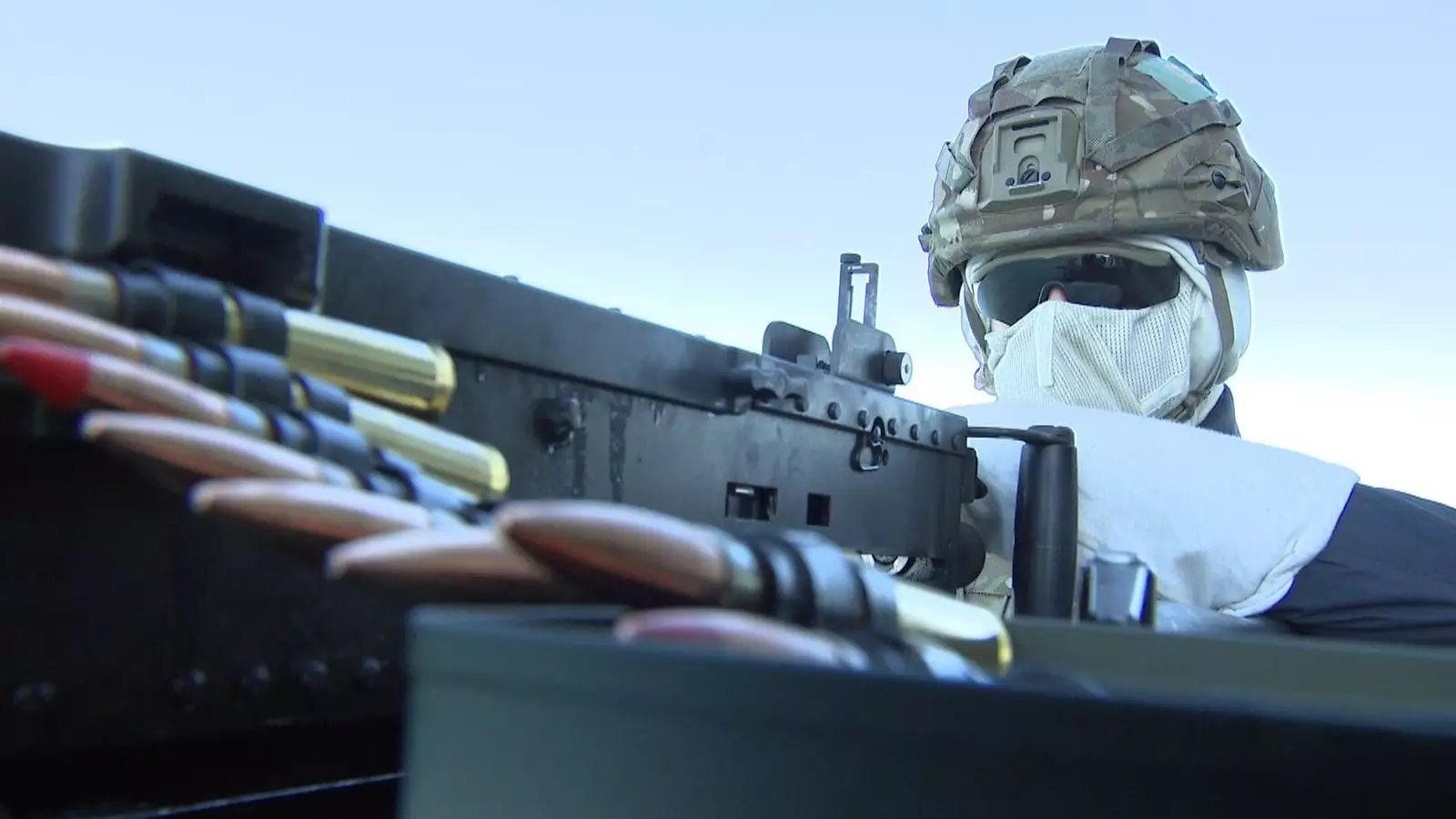The fierce bark of a commanding voice breaks the tense silence aboard HMS Dauntless, a Royal Navy destroyer that has become a symbol of Britain’s military readiness. Amid geopolitical tensions that threaten to spiral into conflict, the urgency ringing through the air signals more than just an ordinary training exercise; it denotes a dire need for vigilance in a world spiraling towards chaos. As enemy drones swarm both from the sky and the sea, the crew rushes to their stations, epitomizing the reality that the maritime landscape is evolving, and with it, the stakes are raising palpably higher.
The exercise off the coast of Wales—not just a test of military might but a stark reminder of the threats looming on the horizon—demonstrates the unnerving new normal for armed forces around the globe. With drone warfare escalating globally, the United Kingdom must grapple not just with defensive mechanisms, but with the ethics and implications of employing technology that often blurs the lines of combat. The recent drills featured live fire, showcasing the firepower of a contemporary naval force equipped to handle threats that have left traditional combat strategies in the dust.
The Shadow of Geopolitical Tensions
Tensions between Washington and Tehran sweep like dark clouds over these preparations, creating an uncertain backdrop for HMS Dauntless and its crew. The posturing of former President Donald Trump and his aggressive rhetoric concerning Iran punctuate a fragile international climate, prompting a critical appraisal of Britain’s role in this theater of conflict. The assertion by Armed Forces Minister Luke Pollard that British naval power offers diverse options for supporting national security is ironically layered with a disquieting reality; are these options bipartisan, or merely a reflection of America’s whims?
There’s an unsettling resonance in his words, suggesting the UK could easily find itself embroiled in a conflict that scarcely concerns it. The line between supporting ally and becoming an unwitting co-conspirator appears increasingly blurred as the deployment looms closer. This situation exposes a fissure in what should ideally be a sovereign military strategy rather than echoes of NATO’s larger geopolitical fiascos.
Weapons Technology: A Double-Edged Sword
The use of advanced weaponry like the Phalanx cannon—whose rapid fire can obliterate targets in a matter of seconds—illustrates not just the military prowess but also the ever-evolving complexity of modern warfare. However, the cold efficiency of machinery like this also brings forth pertinent ethical questions: at what point has lethal technology descended into an arena that extends beyond self-defense? With the Czech experience of drone warfare echoing eerily in the collective global conscience, one cannot help but wonder if we stand on a precipice that could redefine acceptable military engagement.
Perhaps now more than ever, a call for innovative strategic thinking and ethical frameworks to guide military decisions is necessary. The maritime battles of the future will not simply be fought on water, but will also play out across public opinions and ethical dilemmas. The very tools of modern warfare, which are supposed to guarantee security and safety, also have the potential to instigate escalations that bypass rational discourse entirely.
Financing a Force: The Price of Preparedness
Adding salt to the wound of uncertainty is the United Kingdom’s chronic underfunding of its naval capabilities, a reality starkly evident in the Barometer of Defense spending. Pollard’s defense of the recent budget increase, set to reach 2.5% of GDP by 2027, faces skepticism from many in defense circles who argue that such incrementalism falls tragically short of ensuring national safety. The looming question is whether these funds will suffice against the backdrop of a dynamically shifting security environment.
The prospect of a fortified UK navy rings hollow without actual tactical realization. Ensuring true preparedness necessitates more than breathing life into budgets—it requires a comprehensive rethinking of diplomatic engagement alongside defense commitments.
The Royal Navy stands at a precipice. As HMS Dauntless prepares for deployment, the urgency is palpable, yet the terrain ahead holds vast uncertainty. The decisions we make and the commitments we uphold have ramifications far beyond our shores. In the face of impending threats, the fate of international alliances and ethical military engagement hangs in a balance that may soon tip too precariously.

Leave a Reply